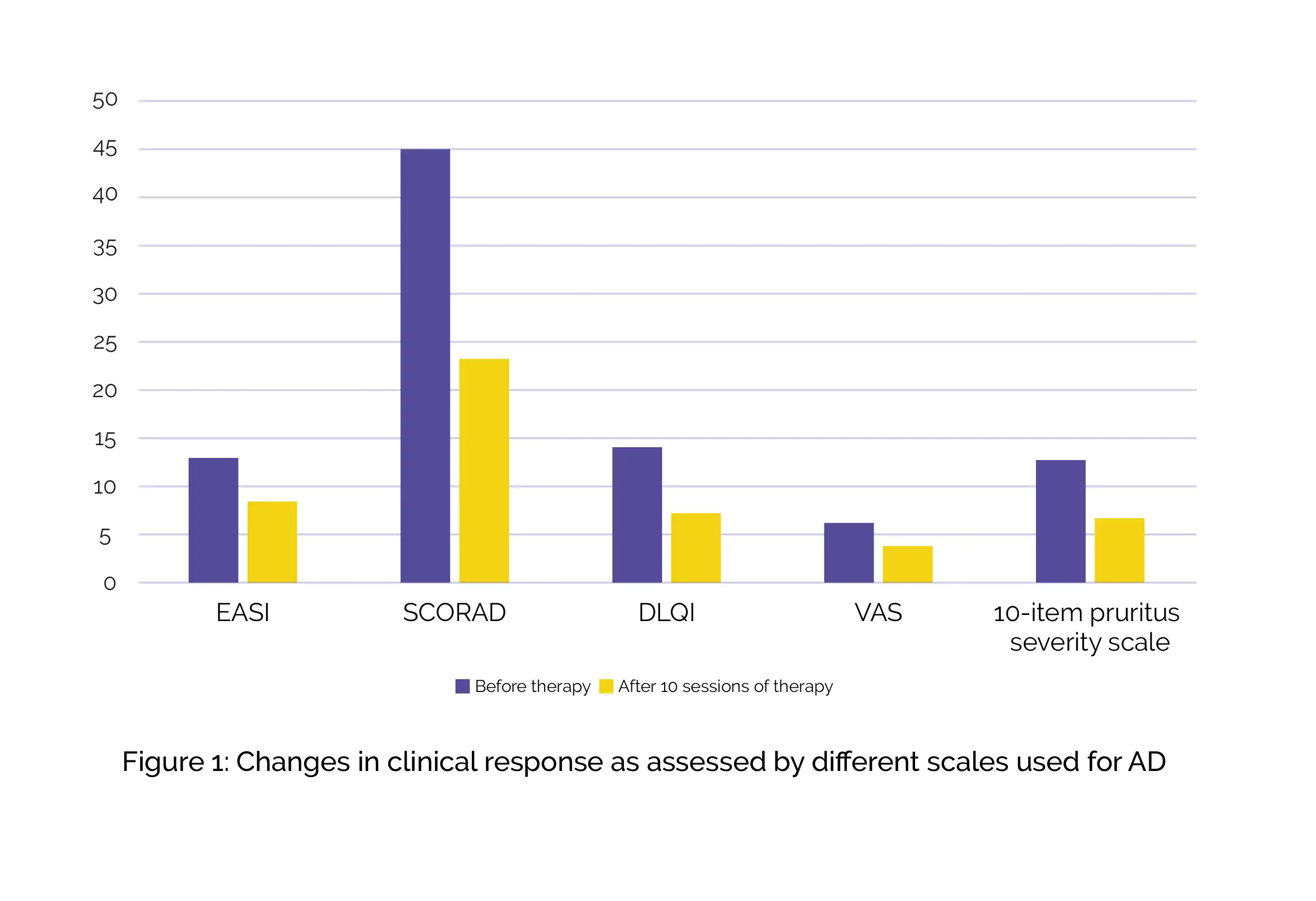Categories
Change Password!
Reset Password!


The aim was to assess the effectiveness of ultraviolet (UV)-free blue light phototherapy on skin health and mood in atopic dermatitis (AD) by analyzing serotonin and kynurenine metabolites.
Blue light therapy shows potential as a safe and effective atopic dermatitis therapy, enhancing symptoms, quality of life, and serotonin levels, while also offering an option for those unable to use standard treatments.
The aim was to assess the effectiveness of ultraviolet (UV)-free blue light phototherapy on skin health and mood in atopic dermatitis (AD) by analyzing serotonin and kynurenine metabolites.
This prospective clinical study involved 20 patients (aged 9 to 45 years) with moderate to severe AD. Participants underwent 10 sessions of irradiation with a Full Body Blue device (453 nm). Pre- and post-treatment, the serum levels of kynurenine, serotonin, quinolinic acid, kynurenic acid, and tryptophan were gauged.
The scores of Eczema Area Severity Index (EASI; 13.16 versus 8.65; p = 0.00016), SCORing Atopic Dermatitis (SCORAD; 44.99 versus 23.73; p < 0.00001), Dermatology Life Quality Index (DLQI; 14.37 versus 7.42; p = 0.00351), Visual Analogue Scale (VAS; 6.53 versus 3.95; p = 0.00251), and pruritus severity scale (13.32 versus 7.05; p < 0.00001) considerably improved after ten sessions of the blue light therapy (Figure 1):

Also, there was a notable increase in serum serotonin levels (median 139.77 mg/ml versus 274.92 mg/ml; p < 0.00001).
Blue light therapy appears to be useful for the management of both adult and pediatric AD. It could also show a beneficial effect on mood. Additional investigations are warranted to validate these findings.
Dermatology and Therapy
Prospective Clinical Study: Full-Body Blue Irradiation in the Treatment of Atopic Dermatitis
Magdalena Sadowska et al.
Comments (0)